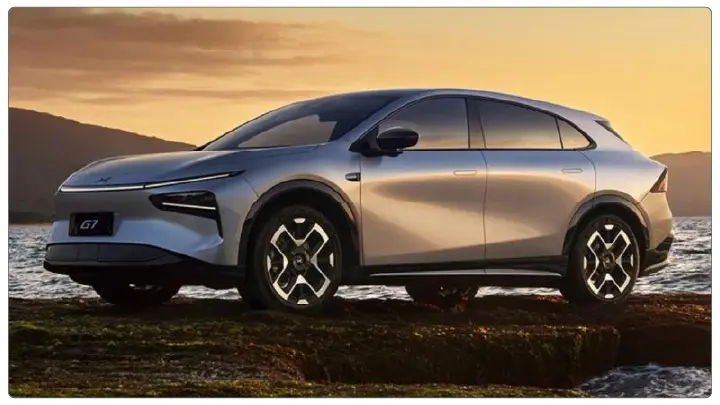XPeng G7 Sets New Benchmark with 700+ km Electric Range
Chinese electric vehicle manufacturer XPeng has announced the official entry of its highly anticipated all-electric SUV, the G7, into the national market. The G7 is an EV designed to elevate the performance standard of consumers to the next level, both in terms of distance covered and emission-free autonomous capabilities. XPeng features an in-house 800 V electrical system at the core of the G7, and in Ultra specification, this comes with an 80.8kWh lithium-iron-phosphate (LFP) cell pack battery. This setup enables the SUV to travel a maximum distance of 702 km using a single charge, making it one of the highest electric consumption SUVs on the market today.

There is also an option with slightly reduced specification, equipped with a 68.5 kWh LFP battery, which provides a very good 602 km of pure electric range. In addition to the endurance, XPeng has made the G7 more convenient through an ultra-fast DC charging option. This enables drivers to charge the battery from 0 to 80% within 12 minutes. The fast turnaround ensures minimal range anxiety and downtime during long-distance travel, making the G7 an attractive vehicle regardless of whether one is an urban commuter or a highway explorer.
Although the figures are very impressive, the development of the intelligent driving platform is the actual headline-making innovation that XPeng has to offer. The extraordinary Turing Artificial Intelligence smart driving chip is the world's first smart driving chip to be installed in a G7 vehicle. This company claims that this is the chip that drives their term for the superior smart driving system.
The technology that makes XPeng stand out in this launch is its combination of high-performance mechanics and AI-powered mobility. The G7 is not another EV that the company is launching, but an intelligent mobility platform that can work along with the lifestyles of users. The G7 symbolizes the shift in the industry, where smart driving technology and user-oriented features become as essential as battery range or the time required to accelerate.